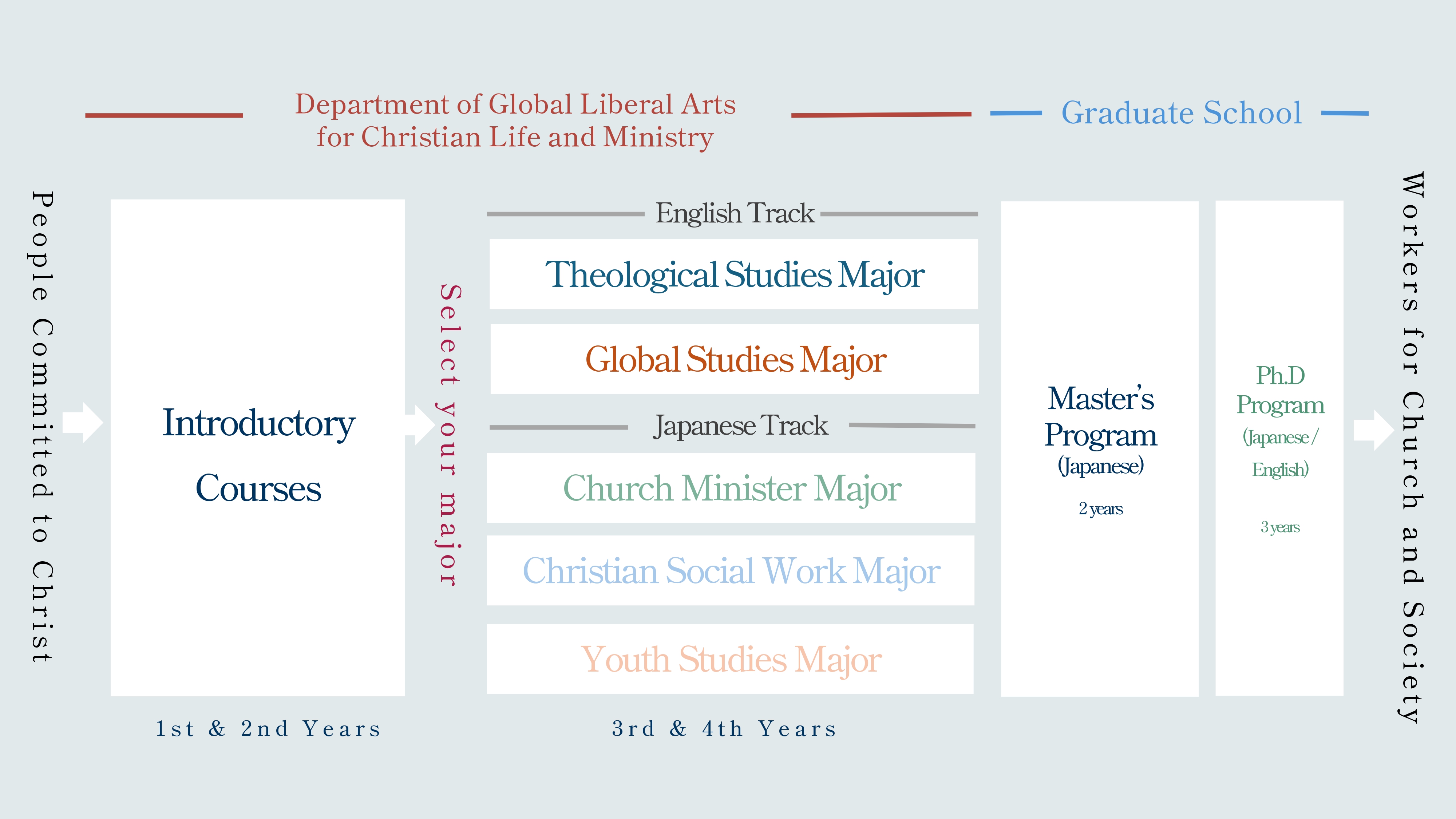Bachelor of Arts (B.A.) Program

Tokyo Christian University’s Bachelor of Arts degree is an accredited degree recognized around the world (accreditation through the Japan University Accreditation Association ).
TCU English Track
TCU’s English track (fall enrollment) is for students who wish to use English as the primary language of instruction. This includes both native English speakers and non-native speakers who demonstrate English-language proficiency at the college level.
Most students who enter in the fall take Japanese language classes (those who are already proficient in Japanese may test out). Students who reach an advanced level also have the option to take courses in which Japanese is the primary language of instruction, that is, together with those who enrolled in the Japanese Track.
Whether in the English or Japanese-language track, all students take a range of “core” courses, language courses, and various other introductory courses in their first and second years.
Upon entering their third year, students declare a major and usually a minor.
English-track students can major in either Theological Studies or Global Studies. Students in either major can declare a minor in Japanese Studies, and students majoring in Theological Studies can declare a minor in Global Studies. Students in the Japanese track have the additional options of majoring in Youth Studies, Christian Social Work, or Church Ministries.
At TCU, we are working hard to integrate our classrooms. We strongly encourage students in the English track to work hard in their Japanese studies so that, before they graduate, they can take one or more non-language courses in Japanese, together with native Japanese speakers. Likewise, we strongly encourage Japanese-track students to work hard at developing their English skills so that they can take non-language courses in our English track.
Bilingual Class
TCU also offers bilingual project-based classes taught in Japanese-English. Through this, students develop the ability to work with people from various cultures.
TCU Japanese Track
Similarly, TCU’s Japanese track (spring enrollment) is for students who wish to use Japanese as the primary language of instruction. This includes both native Japanese speakers and non-native speakers who demonstrate Japanese-language proficiency at the college level (for example, Level 1 on the Japanese Language Proficiency Test).
